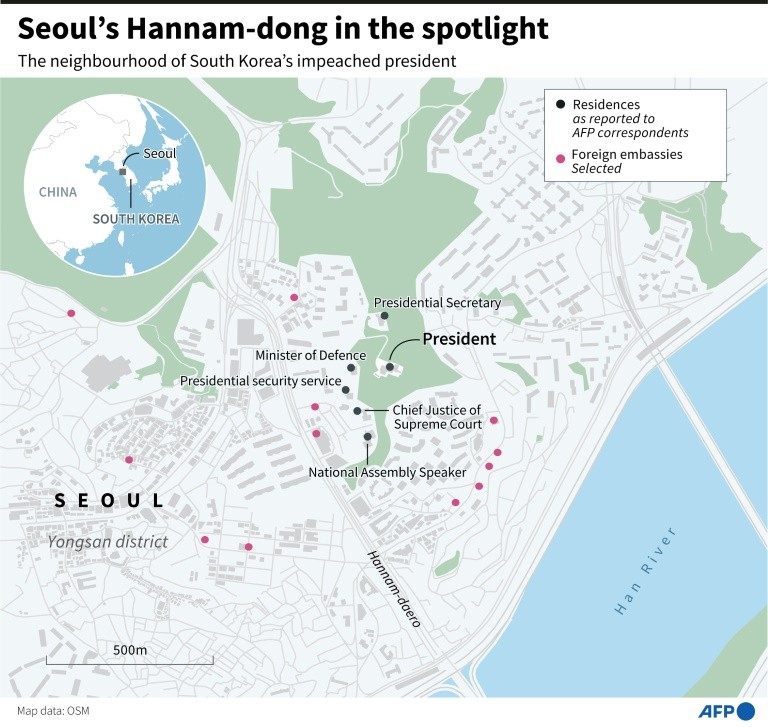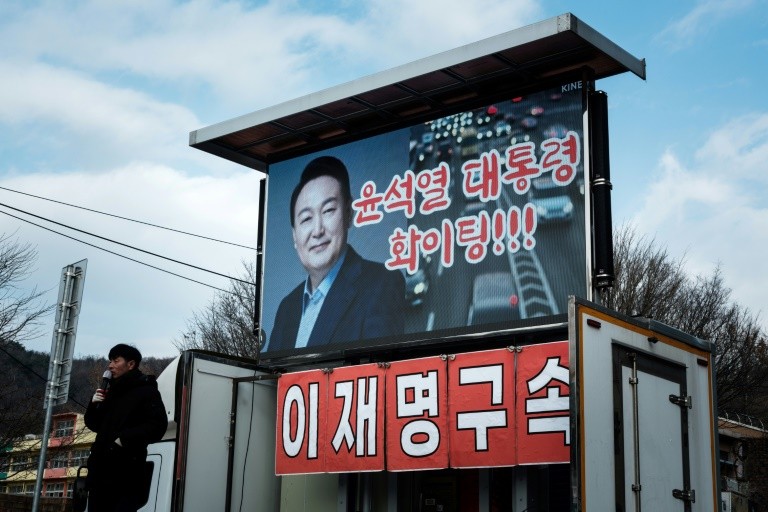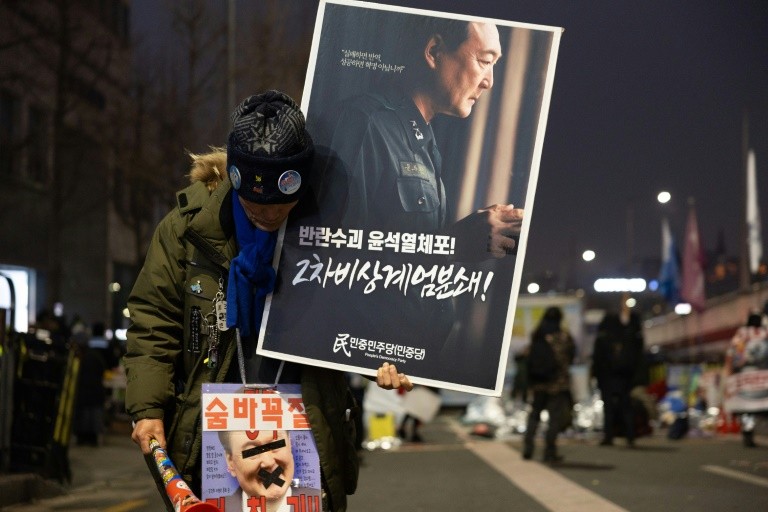
The impeachment trial of South Korea's suspended President Yoon Suk Yeol begins Tuesday, with the country's Constitutional Court set to weigh whether to strip him of his presidential duties over a failed martial law bid.
Yoon's December 3 power grab plunged South Korea into its worst political crisis in decades, after he directed soldiers to storm parliament in an unsuccessful attempt to stop lawmakers voting down his suspension of civilian rule.
He was impeached soon after and suspended from duty, but has gone to ground in his residence since, refusing summonses from investigators probing him on insurrection charges and using his presidential security team to resist arrest.
Lawmakers also impeached Yoon's stand-in last month, putting the country in further political instability, and the current acting president has appeared unwilling to wade into the standoff, instead urging all parties to negotiate for a solution.
The trial's first of five hearings is slated to begin at 2:00 pm (0500 GMT). The following sessions take place on January 16, 21, 23 and February 4.
The court will decide mainly two issues, whether Yoon's martial law declaration was unconstitutional and if it was illegal.
"This impeachment case focuses solely on the martial law situation, so the facts are not particularly complex," lawyer Kim Nam-ju told AFP.
"Since most of the individuals involved have already been indicted and the facts have been somewhat established, it doesn't seem like it will take a long time."
The court has up to 180 days from December 14, when it received the case, to make its ruling on whether Yoon indeed violated the constitution and the martial law act.
Yoon's legal team said he would not appear at the first hearing over purported safety concerns, saying he would be willing to appear at a later date if security issues were ironed out.
The trial will continue in his absence if he does not appear.
Former presidents Roh Moo-hyun and Park Geun-hye did not appear for their impeachment trials in 2004 and 2016-2017, respectively.
Yoon's lawyers have argued the court must utilise the full 180 days -- specifically to examine what "led to the declaration of martial law".
In a parallel criminal inquiry, a joint team of investigators from the Corruption Investigation Office (CIO) -- which is probing Yoon over insurrection -- and police are preparing a fresh attempt to arrest the president.
An earlier attempt failed after Yoon's presidential guards blocked access to investigators.
Yoon's chief of staff Chung Jin-suk said his office was "ready to consider all options for investigation or visits" to the sitting leader "at a third location".
If the new warrant is executed successfully, Yoon would become the first sitting South Korean president to be arrested.
If eventually convicted in that case, Yoon faces prison or even the death penalty.
As media speculation rose that the second attempt would take place this week, the police, CIO and Yoon's presidential security service met Tuesday to discuss the arrest warrant, the Yonhap news agency reported.
Police are also reportedly preparing 1,000 investigators for the fresh attempt.
Yoon's guards have reinforced his Seoul compound with barbed wire installations and bus barricades, while a military unit patrols outside.
But the defence ministry said Tuesday that the soldier unit would "focus solely on its primary mission of perimeter security in the vicinity of the official (presidential) residence and will not be mobilised during the execution of the warrant".
Yoon's legal team has also sought to put pressure on police to avoid being involved in the arrest attempt, claiming officers would be in "in violation of multiple laws" if they cooperated with investigators.
Late Sunday, the CIO sent a letter to the defence ministry and presidential security service saying anyone blocking Yoon's potential arrest "may face criminal charges" for obstruction and abuse of authority.










